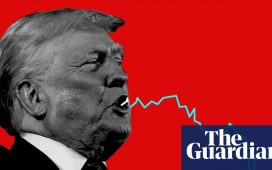Investing.com — Wall Street looks set to start the new week and quarter on a positive note ahead of Friday’s crucial payrolls report. Meta Platforms could face EU charge, and Boeing finally completes its purchase of Spirit Aerospace.
1. Futures marginally higher ahead of key payrolls release
U.S. stock futures edged higher Monday, at the start of a holiday-shortened week which culminates with Friday’s widely-watched nonfarm payrolls report.
By 04:20 ET (08:20 GMT), the contract was 50 points, or 0.1%, higher, climbed 11 points, or 0.2%, and rose by 62 points, or 0.3%.
Wall Street is coming off a mixed quarter, with the and adding 3.9% and 8.3%, respectively, boosted by continued excitement surrounding artificial intelligence, while the lost 1.7%.
The notched its third positive quarter in a row for the first time since a five-quarter streak ending in 2021.
Investors will be focusing their attention on Friday’s report as they look for fresh indications on when the Federal Reserve might start to cut interest rates.
Additionally, Fed Chair is to make an appearance at the European Central Bank’s annual forum in Sintra, Portugal on Tuesday, while Wednesday’s of the Fed’s June meeting will be parsed for the central bank’s view of the economic outlook and the factors influencing the monetary policy outlook.
2. EU to charge Meta Platforms – FT
The European Union is set to charge Meta Platforms (NASDAQ:) with breaking the bloc’s digital rules, according to a report by the Financial Times, released Monday.
The newspaper reported that the regulators will say that they are worried about Meta’s “pay or consent” model, noting that this choice provides a false alternative, with the financial barrier forcing them to consent to their personal data being tracked for advertising purposes.
The EU’s Digital Markets Act was designed to rein in the power of the ‘Big Tech’ firms and ensure a level playing field for smaller rivals, and saw the region’s regulators last week charging Apple (NASDAQ:) with breaching the bloc’s tech rules.
3. Boeing to buy Spirit Aerospace, finally…
Boeing (NYSE:) announced Monday that it would buy Spirit AeroSystems (NYSE:) in a $4.7 billion all-stock deal, with the planemaker finally agreeing a deal for the key supplier after months of talks complicated by Spirit’s interactions with Boeing’s main rival Airbus.
Boeing’s move to take back control of Spirit stems from a desire to resolve the quality problems that have plagued the key supplier in recent years.
The total deal value will be about $8.3 billion including debt, and followed Boeing’s decision to buy back its former subsidiary, which had branched out into supplying Airbus (EPA:) and others since becoming independent almost two decades ago.
Airbus said it would receive $559 million in compensation from Spirit, and would take over core activities at four of the supplier’s plants in the United States, Northern Ireland, France and Morocco.
Spirit said it also planned to sell businesses and operations in Scotland and Malaysia that support Airbus programs. It also plans to sell operations in Belfast, Northern Ireland that do not support Airbus programs.
4. National Rally prevails in French elections
France’s far-right National Rally party and its allies reached 33% of the national popular vote in the first round of parliamentary elections, the interior ministry said, after Sunday’s vote.
The leftwing New Popular Front came in second with 28%, while President Emmanuel Macron’s centrist bloc reached 20%.
This result has seen the euro bounce, with the single currency touching a two-week high, while the , the French benchmark equity index, traded higher, rebounding after losses of around 6% since French President Emmanuel Macron dissolved parliament.
At 04:20 ET (08:20 GMT), traded 0.4% higher at 1.0758, while the rose 1.9%.
Investors have been concerned that the far-right, as well as the left-wing alliance, have pledged big spending increases at a time when France’s high budget deficit has prompted the EU to recommend disciplinary steps.
However, this result was better than feared, but also suggests more volatility this week ahead of next Sunday’s runoff with the final outcome likely to depend on alliance-building.
5. China’s private PMI helps crude prices
The Chinese economy showed signs of growth in June, helping crude prices rise Monday on hope that the world’s largest importer can benefit from the solid momentum in the global economy.
China’s (PMI), a private survey, rose to 51.8 in June from 51.7 in May earlier Monday, growing at the fastest clip in more than three years, above the break-even line of 50.0 that separates growth from contraction.
This positive result has boosted sentiment after official PMI data released on Sunday showed fell for a second month in June and services activity slid to a five-month low.
By 08:20 ET, the futures (WTI) traded 0.9% higher at $82.27 a barrel, while the contract climbed 0.8% to $85.70 per barrel.
Both contracts gained around 6% in June, after the Organization of the Petroleum Exporting Countries and their allies, a group known as OPEC+, extended most of its deep oil output cuts well into 2025.









